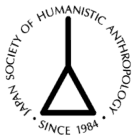OUR MISSION WORLDWIDE:
The Africa, America and Asia Reconciliation (AAAR) was established in 2001.
“Ouidah 92” was originally designed and set to be launched in 1992. The project received the support of African governments. In 1993, the Republic of Benin, on the initiative of the government of President Nicephore Soglo, launched “OUIDAH 92” Festival for ten days. “OUIDAH 92” objective is to bring the Black Diaspora closer to their roots in Benin and Africa.
“At the suggestion of Haiti and African countries, the General Conference of UNESCO approved, at the 27th session in 1993, the establishment of the Slave Route Project.” (UNESCO)
“The project(Slave Route Project) is administered, coordinated and monitored by UNESCO Department of Intercultural Dialogue and Pluralism for a Culture of Peace” (UNESCO)
The Slave Route, International Project of UNESCO, was launched in the Republic of Benin on September 1st, 1994. President Nicephore Soglo was then Head of State and Head of the Government of Benin.
To the effect of “Intercultural Dialogue and pluralism for a Culture of Peace”, the International Leaders Conference on Reconciliation and Development was held in Benin, on the initiative of President Mathieu Kerekou, Head of State.
Therefore, the Africa, America and Asia Reconciliation will promote “Intercultural Dialogue and Pluralism for a Culture of Peace” by raising the awareness of the peoples of the world on the necessity to achieve reconciliation through dialogue and consensus.
The following is respectively the Japanese, the English and the French versions of ” Three Main Principles” and some of their applications for Reconciliation and Development according to the International Leaders Conference on Reconciliation held in 1999 in Benin, December 1st to 5th:
和解と発展のための3つの原理 (Japanese language)
- 過去(歴史)の事実の確認
- 誤りを認める
- 赦し合い、憎しみの連鎖を断つ -“Renaissance”
国民会議における国民の和解(ベナン国内における応用)-1990
- 過去(歴史)の事実の確認
- 国民会議準備委員会のレポート
- 国民会議の結果報告書
- 誤りを認める
- Kerekou大統領の閉会挨拶
- 赦し合い、憎しみの連鎖を断つ -“Renaissance”
- 宗教者de SOUZAのスピーチ
- 国民会議の結果報告書
- Kerekou大統領の閉会挨拶
- 新憲法
ベナンで催された国際和解会議における国際的応用-1999
- 過去(歴史)の事実の確認
- “Reconciliation Act”-1999年
- UNESCO 「奴隷の道」プロジェクト-Sept.1994-2004
- “Anneaux de la Memoire”.フランスのナント市 1993年11月
- ハイチと「奴隷の道」-1991年
- “Memorial Goree-Almadie”-セネガル. 1986年7月と1988年10月
- “Notre Troisième Racine” メキシコのプロジェクト –1980年代
- 誤りを認める
- “Reconciliation Act”-1999
- ドキュメンタリー「Noble Desire」におけるKEREKOU大統領の発言(1999)
- 赦し合い、憎しみの連鎖を断つ -“Renaissance”-1999~現在!
-
- “The AfricaTown, USA”, Alabama
-
- “Reconciliation Renaissance”
-
The Three Main Principles for Reconciliation and Development (English)
1- Recollection of the facts
2-Recognition of the wrong
3-Forgiveness and reversing the course of the resentment process-“Renaissance”
National Reconciliation-National Application in Benin-1990
- Recollection of the Facts
- Report of the National Preparatory Committee of the National Conference
- General Report of the Conference
- Recognition of the wrong
- Closing Speech of President Kerekou
- Forgiveness and reversing the course of the resentment process-“Renaissance”
- Intervention of Mgr de SOUZA
- General Report of the Conference
- Closing Speech of President Kerekou
- New Constitution
International Reconciliation Conference in Benin-International Application-1999
- Recollection of the Facts
- “Reconciliation Act”-1999
- UNESCO Slave Route Project-Sept.1994-2004
- “Anneaux de la Memoire”.City of Nantes Nov. 1993
- Haiti and “Slave Route”-1991
- “Memorial Goree-Almadie”-Senegal. July 1986 and Oct.1988
- “Notre Troisième Racine” of Mexico in the eighties
- Recognition of the wrong
- “Reconciliation Act”-1999
- President KEREKOU to “Apologize” in “Noble Desire”.(1999)
- Forgiveness and reversing the course of the resentment process-“Renaissance”-1999~Present!
-
- “The AfricaTown, USA”, Alabama
-
- “Reconciliation Renaissance”
-
Les Trois Principes Essentiels de Réconciliation et Développement (French)
- Un travail de Mémoire-Recherche historique
- Volonté d’assumer le fait historique occulté- souci de la vérité historique et de l’exigence éthique-Reconnaissance éthique
- Recherche de pardon et “Renaissance”
Reconciliation nationale-Application nationale au Bénin-1990
- Un travail de mémoire-Recherche historique
- Travaux du Comité National Préparatoire de la Conférence Nationale
- Rapport général de la Conférence
- Reconnaissance éthique
- Discours de clôture du Président KEREKOU
- Recherche de pardon et renouveau démocratique
- Discours de clôture du Président KEREKOU
- Intervention de Mgr de SOUZA
- Rapport général de la Conférence
- Nouvelle constitution
Conférence de Réconciliation Internationale au Bénin-Application internationale-1999
- 1-Un travail de mémoire-Recherche historique:
- Conférence internationale des leaders-1999
- UNESCO et projet “Route de l’Esclave”- Sept. 1994-2004
- L’exposition “Les Annaux de la Mémoire” de la ville de Nantes-Nov. 1993
- Haiti et “Route de l’Esclave”- Août 1991
- Le projet du “Mémorial Gorée-Almadies” du Sénégal -Juillet 1986 et Oct.1988
- Le Programme “Notre Troisième Racine” du Mexique -Les années 1980
- Reconnaissance éthique
- “Reconciliation Act”.(1999)
- Le Président Mathieu Kérékou pour la demande de “Pardon”dans “Noble Desire”.(1999).
- Recherche de pardon et renaissance-1999~présent!
- “The AfricaTown,USA”, Alabama
- “Reconciliation Renaissance”


